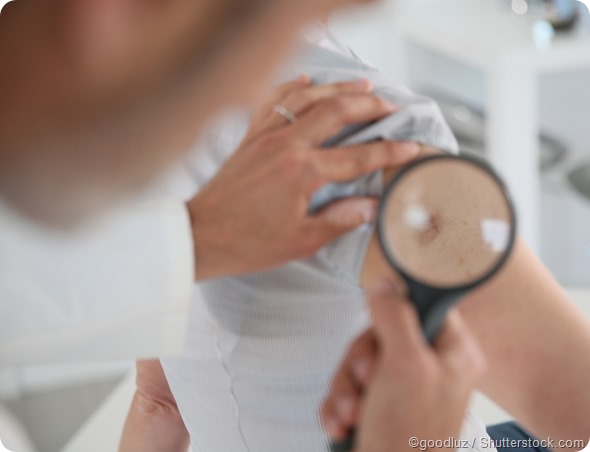Researchers have developed an algorithm that matches or exceeds the ability of dermatologists to diagnose skin cancer, according to a new study.
The study authors hope the technology can be integrated into smartphones, to improve access to medical care. For people who live far away from a health clinic, cannot take time off work or cannot afford to cover healthcare costs, being able to receive a diagnosis via their mobile device could be life saving.

As reported in Nature, Andre Esteva and Brett Kuprel (Stanford University, California) and colleagues trained an algorithm in image recognition using a database of more than 129,000 images of 2,000 skin diseases.
Using new sets of images, they then tested the algorithm against 21 board-certified dermatologists to see whether it could reliably distinguish skin lesions or moles that were cancerous.
In one test, the clinicians and algorithm had to tell the difference between carcinomas and non-cancerous growths and in another, they had to distinguish between benign moles and the most deadly skin cancer - malignant melanoma. For both tests, the algorithm was either equally as good at or better than the dermatologists at telling the difference.
Adjunct professor at the Stanford Artificial Intelligence Laboratory, Sebastian Thrun, says: “We realized it was feasible, not just to do something well, but as well as a human dermatologist… that’s when our thinking changed. That’s when we said, ‘Look, this is not just a class project for students, this is an opportunity to do something great for humanity.”
The researchers suggest that the algorithm could be made smartphone compatible, allowing people to photograph skin lesions and then use an app that would alert them if medical attention was needed.
What if we could use it to visually screen for skin cancer? Or other ailments?”
Andre Esteva.
Esteva and team believe that transitioning the algorithm to mobile devices would be fairly easy. They say it does require vigorous prospective validation before it can be implemented into clinical practice, but they are hopeful that, one day, the technology could contribute to visual diagnosis in various fields of medicine.